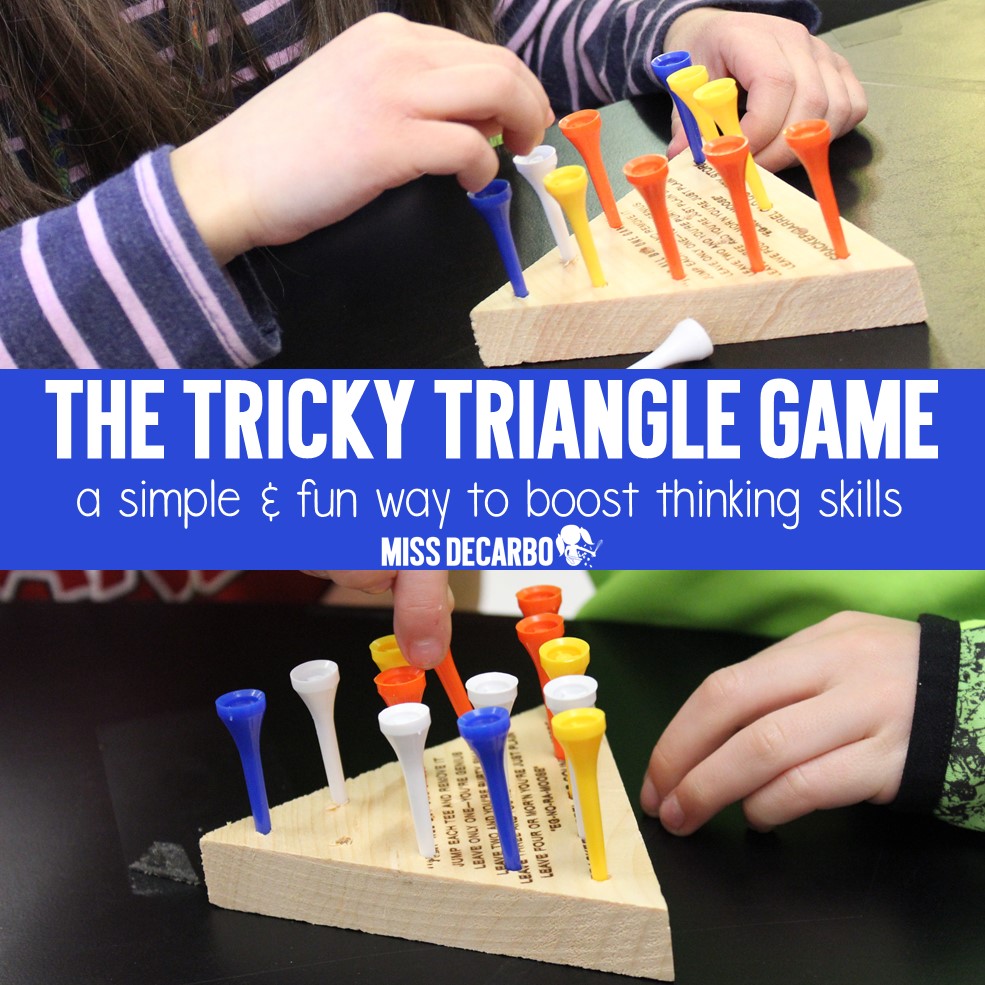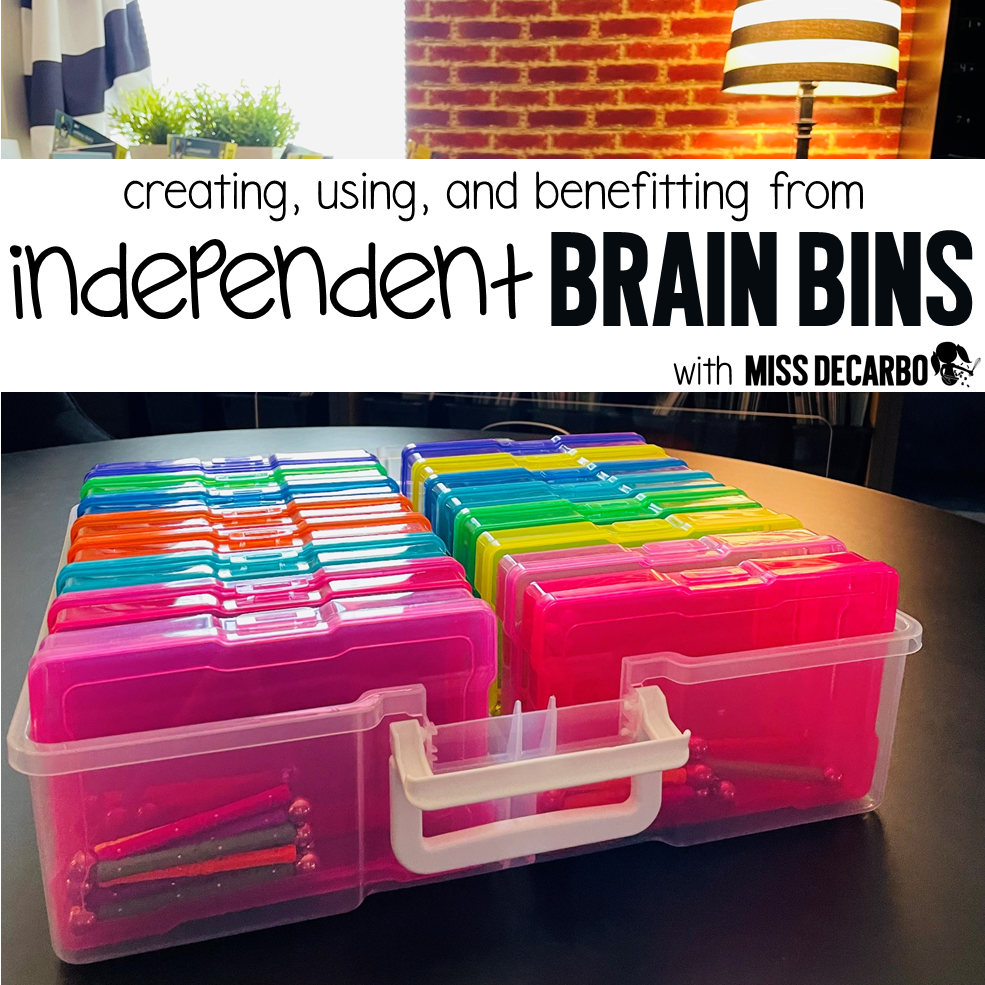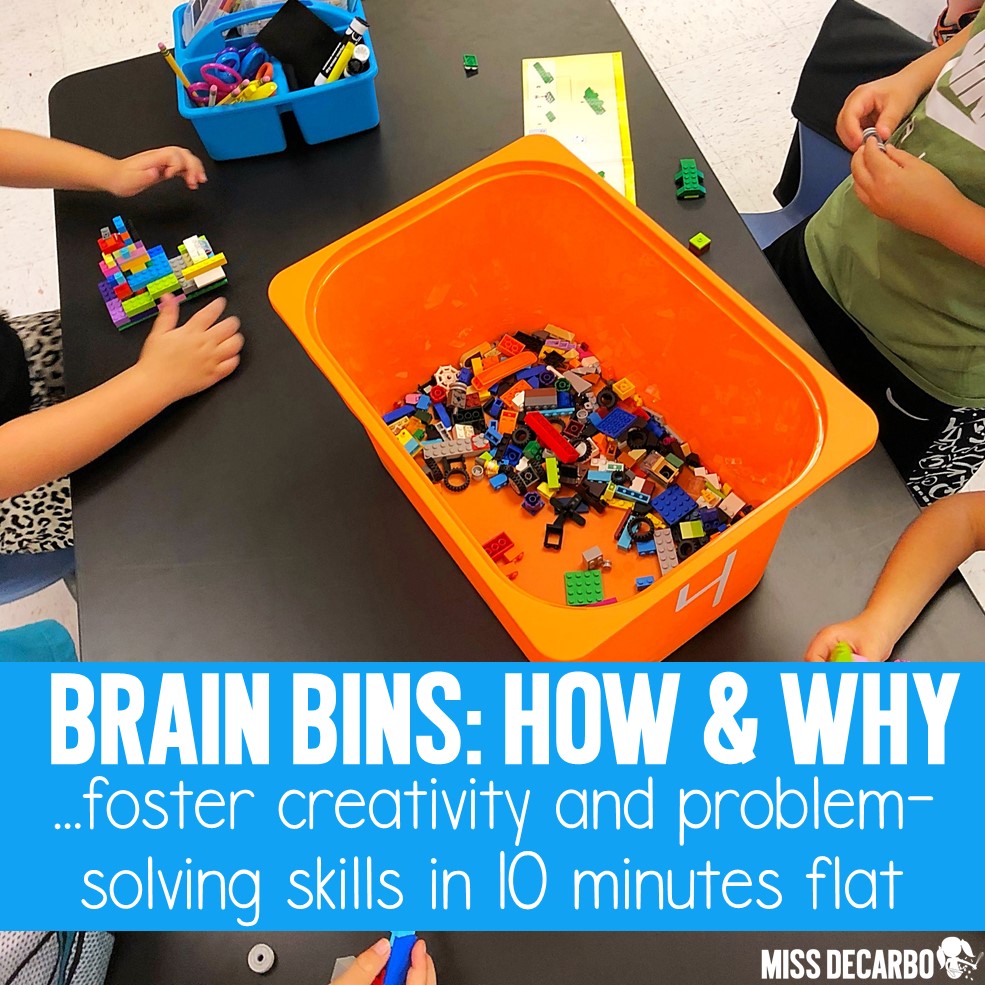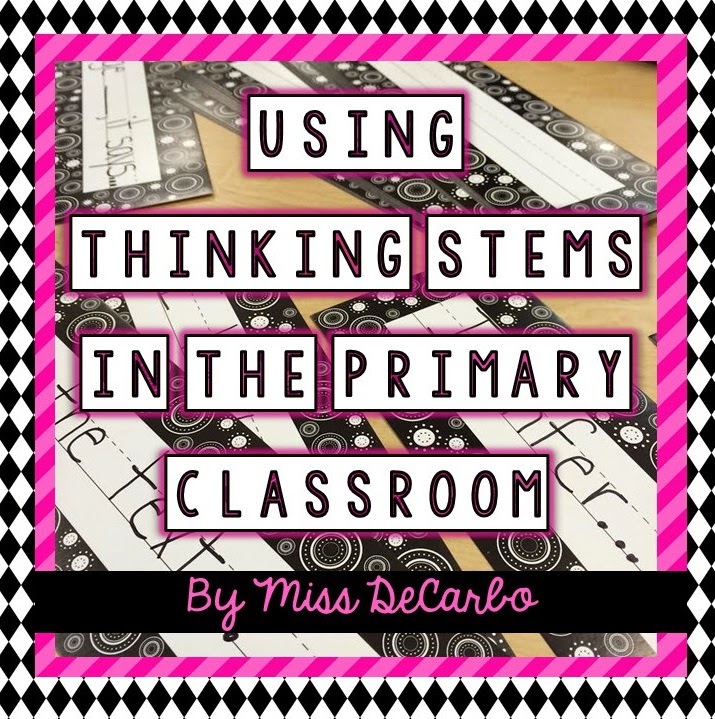Critical Thinking Exercises for Students

Critical thinking exercises are as important to our minds as physical exercise is to our bodies. In the same way children are born with the ability to cry, children are born with an ability to think. And they do! But the complexity of their thinking is a different story. Critical thinking needs to be fostered and promoted. Opportunities to USE thinking skills in complex ways need to be offered in order for these complex thinking skills to develop. We know critical thinking is not something a child is automatically born knowing how to do. So, let’s talk about how we can implement critical thinking exercises into our students’ day.
The following blog post contains Amazon affiliate links. This means my blog receives a small compensation if you purchase using these links, but don’t worry- there is absolutely no extra cost to you! The links are included to be convenient and helpful for you to find resources I may refer to.
What Does Research Say?
There are many factors that contribute to the acquisition of critical thinking skills. Eric Jenson, in his book, Teaching with the Brain In Mind, explains that maturity, life experiences, disorders, the emotional state, and other aspects can play a role in how brains develop. Regardless, critical thinking skills can be fostered! The more exposure and opportunities children are given to think critically, the better! We want to implement activities and experiences that provide:
- opportunities for trial and error
- opportunities that require persistence in reaching a solution or the answer
- activities or questions that do not have a “right” or “wrong” answer
- exercises that promote creativity and discovery
- verbal discussions and conversations that require students to explain their thinking
- opportunities to make many mistakes
- …and more!
It’s important that we provide these opportunities for students if we want them to develop complex thinking skills. I know how precious time is when it comes to planning. I’m going to share some simple exercises that nurture thinking skills in primary students. These can be done QUICKLY during morning meetings, at the end of the day, or before or after recess. Let’s get started!
Critical Thinking Exercises for Creativity
Creativity helps students see thinks from different perspectives. This is an important life skill. We want our students to be able to “think outside the box” so that they can be leaders and world changers when it comes to solutions and innovative thinking. Here are some quick exercises you can incorporate:
I Used To Be- This activity is in my Daily Digital Dendrite Challenge, shown above. (It contains DAILY brain-building exercises for students!) Present an ordinary object to students. Ask them what else it could be used for? In the photo above, I used a spoon. Students will think creatively about other ways a spoon can be used. Examples might include a shovel, a mirror to check your teeth, a drum stick for pots and pans, etc. Try it with a popsicle stick, cup, etc. It’s so fun!
Box Recycling- Want to literally get your students to think outside the box? Give them time to transform a regular box into something useful, or something that can be used for imaginary play!
Shape Art- Make a list of shapes and assign a number beside each one. For example: 5 circles, 7 squares, 3 triangles, etc. Students will need to use ONLY those shapes and the correct amount of each shape to create and design a picture. I have had students turn their shapes into animals, landscapes, etc.!
Critical Thinking Exercises for Persistence

Math brain-builders – These are perfect for helping foster persistence. In the Digital Daily Dendrite Challenge above, students must work to figure out a value for each picture. These are easy to create and kids love them! Remember, you’re teaching persistence, so LET THEM STRUGGLE. Helping make everything come easily to students will not help in the long run. Persistence requires students to overcome a challenge.
The Letter Challenge – How many words can you make out of the letters in the word HAMBURGER? You’ll find these brain-builders every month in the Daily Dendrite Challenges. Students will make a list of as many words as they can make out of the letters in the given word. For hamburger, we can make the words: am, ham, gum, ram, beg, rug, mug, and many more!
Exercises for Visual Perceptual Skills

Find the Differences– Finding subtle differences in pictures is a fun activity that helps build visual perceptual skills. Since visual perceptual skills allow us to make sense of the information being sent to the brain, they are important for overall thinking skills. (I have another blog post if you want to read more about visual perceptual skills here.)
Hidden Pictures– Hidden picture activities require persistence, perceptual skills, and a lot of concentration and focus. They are great brain-builders for children! Highlights has some of my students’ favorite Hidden Picture books.

In the exercise I created above, students need to count how many triangles they see. They will be challenged to look at the image from different points of view in order to see the total amount of triangles. When they think they have the answer, click on the picture of the sun in the bottom right-hand corner. It will reveal the answer! (If a Daily Dendrite Challenge does not have a “right” answer, it will tell the children that there are multiple solutions.)
Exercises for Language and Reasoning
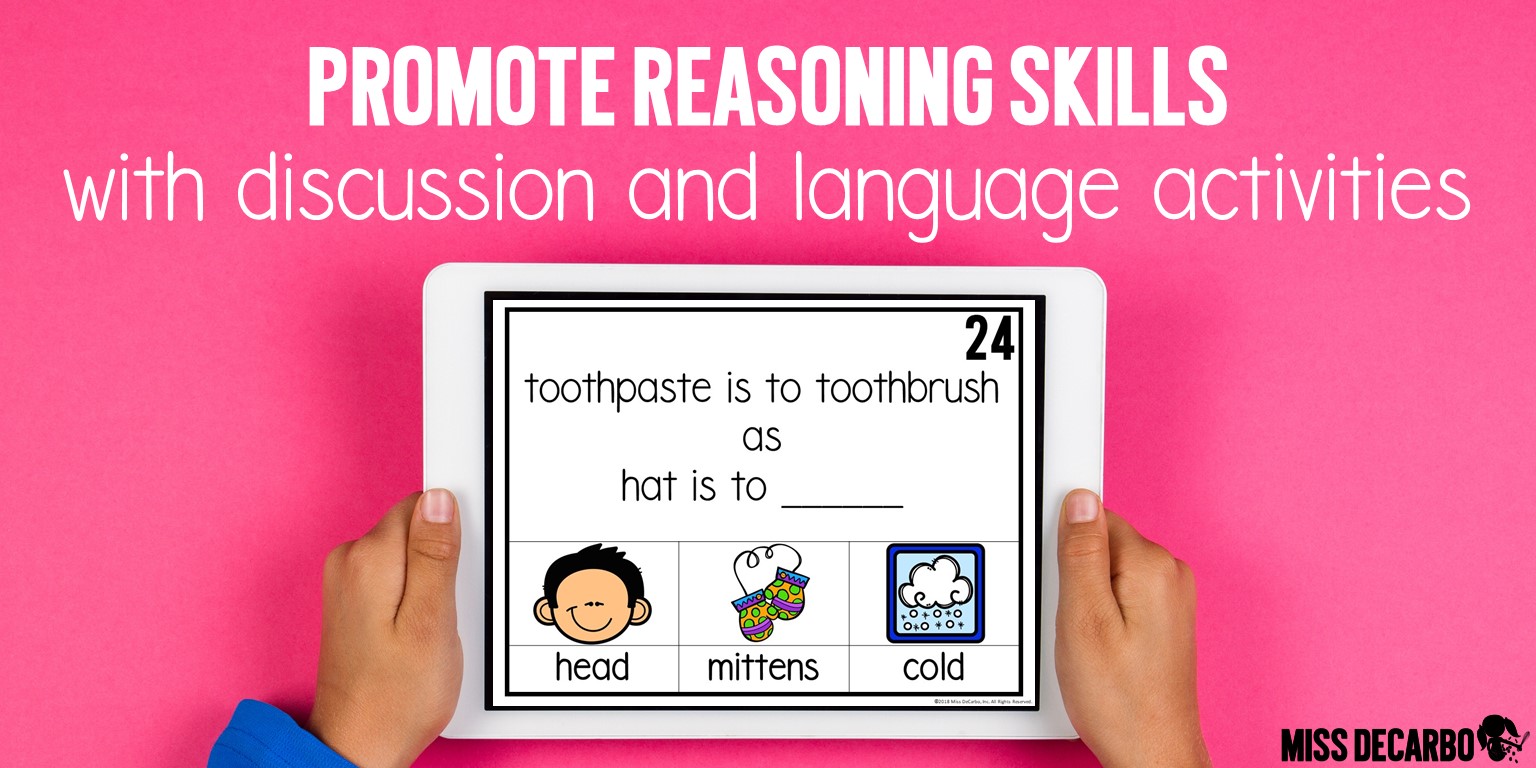
Analogies – I love that the Daily Dendrite Challenge contains kid-friendly analogies for students! They are great beginning analogy exercises that will help students understand the relationship between two concepts or objects. Like all of the daily brain-building exercises, teachers will want to facilitate discussion and help when needed.
What Word Doesn’t Belong? – cat, bat, owl. Which word doesn’t belong and WHY? Some students will explain that the word cat does not belong because it is the only animal that has four legs in this set. Some students will explain that cat doesn’t belong because it is the only one that cannot fly. Another child might suggest that the owl doesn’t belong because it is the only animal that does not have a short a in its name. Do you see how there are multiple correct answers as long as the child can explain his or her reasoning? This exercise is amazing and it’s easy to implement! You can find more of these exercises in the Digital Daily Dendrite Challenge Bundle.
Storytelling – Don’t underestimate the value of story telling. Allowing students to verbally tell stories helps their oral language skills develop, their creativity be ignited, and their sequential thinking skills.
Take The Daily Dendrite Challenge!
Wouldn’t it be nice if all of these exercises were already compiled for you and your students? Guess what?! They are! My Daily Dendrite Challenge Bundle offers a quick and engaging exercise that will foster thinking skills! It is paperless and includes many of the exercises in this post, plus TONS more!
When you use the Daily Dendrite Challenge, you can rest assured that you are providing quick and engaging exercises that are building thinking skills, problem-solving skills, creativity, logical reasoning skills, oral language, visual perceptual skills, and MORE!
Plus, your students will LOVE it and BEG for more than one a day! Click HERE to find the Digital Daily Dendrite Challenge in my shop!
If you loved this post and want to share it with a friend, or save it for future reference, feel free to use the image below to Pin it on Pinterest!






